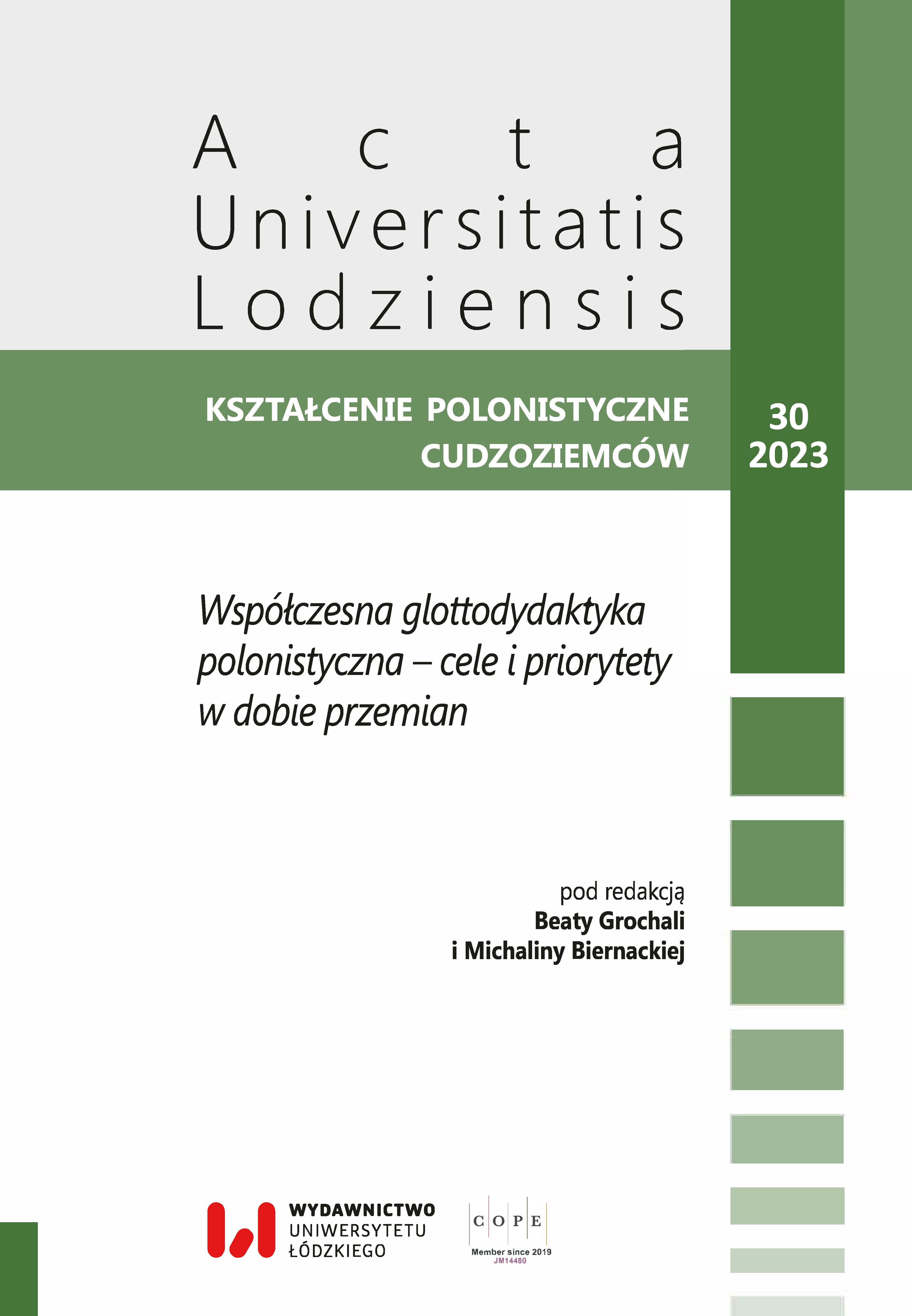Językowy obraz "wolności" w wypowiedziach polskich i ukraińskich studentów
The linguistic image of freedom in the statements of Polish and Ukrainian students
Author(s): Anna Sokół-KleinSubject(s): Foreign languages learning, Educational Psychology, Migration Studies
Published by: Wydawnictwo Uniwersytetu Łódzkiego
Keywords: freedom; language of values; linguistic image of the world; cognitive definition; survey research
Summary/Abstract: The aim of the article is to show the linguistic image of freedom in the utterances of Polish and Ukrainian students studying at the Faculty of Philology of the University of Lodz and to analyze the changes in the way of defining the term by comparing our own research with those conducted in the 1990s and 2000s by another researcher, Irina Lappo (2006). Surveys were used as research material, in which students had to choose the 5 most important values from a list of 36 and number them on a scale of 1 to 5 (number 1 means the most important value, etc.), write their own definition of value, justify why the indicated value is important and provide synonyms for the selected value. The quantitative study showed what values are important to young people and how important freedom is for them. Next, the focus was on the conceptualization of the aforementioned concept, taking into account contextual factors. Since the definitions formulated by the students have the character of natural texts, the method of cognitive definition was adopted in the description of the material. Freedom turned out to be an extremely important value for young people, as shown by quantitative research: among Polish students it was in second place (12.41%), and among Ukrainian students – sixth (5.19%). In the utterances of Ukrainian students, there are visible references to the war; both in definitions, semantic connotations, as well as in the motivations for choosing values, which clearly shows that the formation of the meaning of the concept often depends on historical conditions. As for the statistical data on the frequency of semantic categories, for people of both nationalities, the most important thing is to understand freedom as the lack of restrictions. Poles are the least likely to identify the analyzed value with self-expression (10%). Ukrainians, on the other hand, did not feel free to live in harmony with themselves (0%).
Journal: Acta Universitatis Lodziensis. Kształcenie Polonistyczne Cudzoziemców
- Issue Year: 2023
- Issue No: 30
- Page Range: 401-416
- Page Count: 16
- Language: Polish

